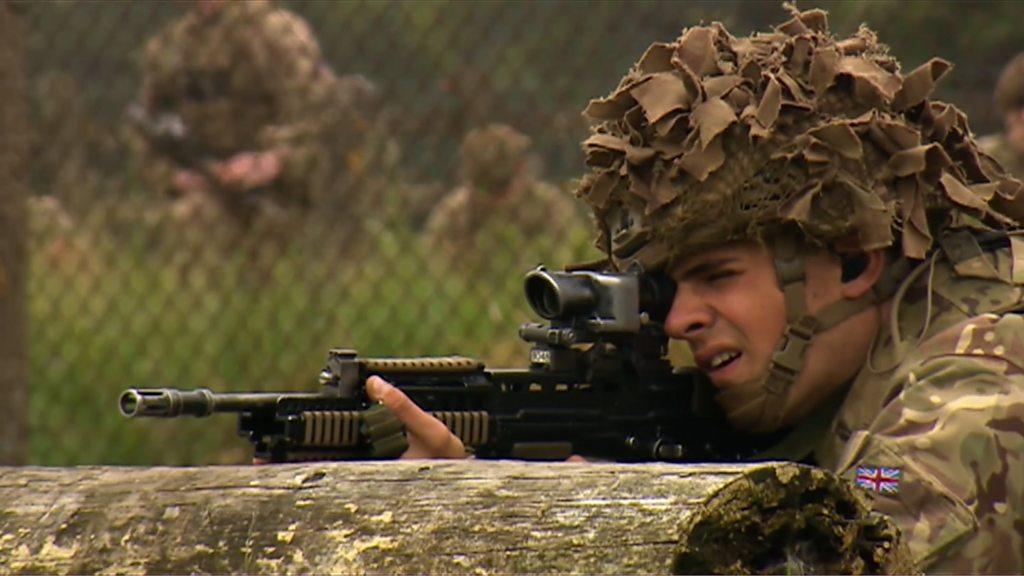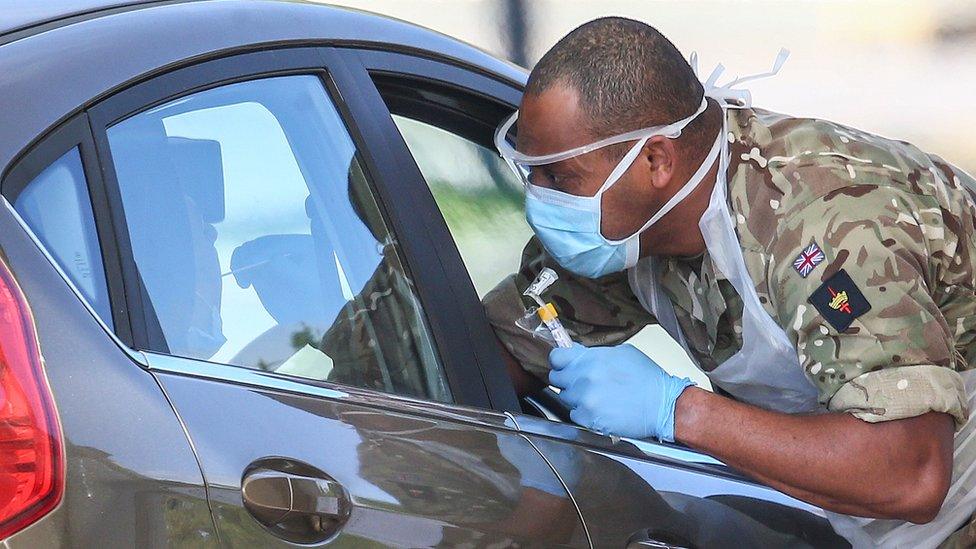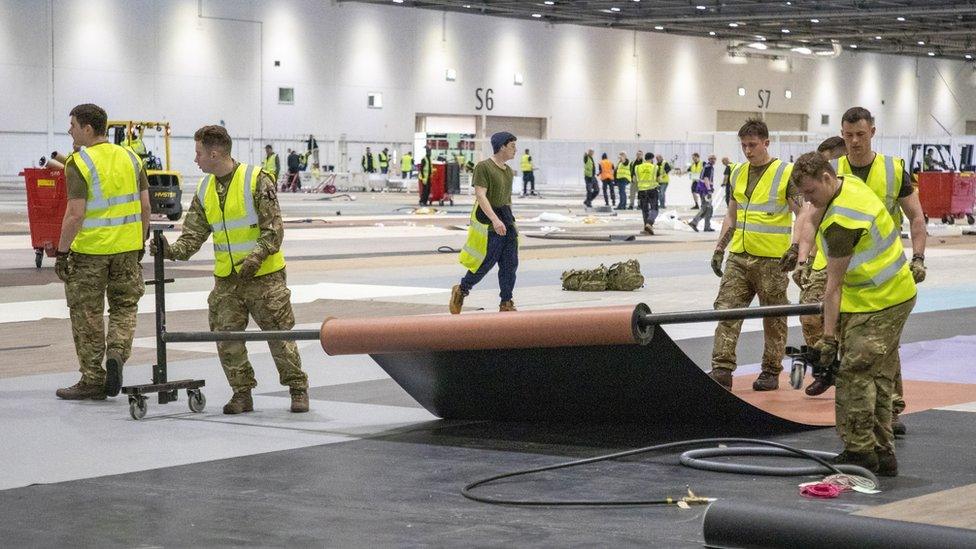Praise for soldiers who helped deliver babies in lockdown
- Published

Sjt Wayne Delahunty and L/Cpl Dan Ellis were both involved in delivering babies while out with paramedics
Two soldiers who were working with Welsh ambulance crews during lockdown have been commended after helping to deliver babies.
The two men from the 1st Battalion The Rifles were on separate "shouts" involving expectant mothers.
Sjt Wayne Delahunty and L/Cpl Dan Ellis said their experiences were "remarkable".
The pair have been part of the Covid Support Force working alongside the emergency services in Wales.
Former Leicester nightclub manager Sjt Delahunty, who has been deployed in Afghanistan and Iraq and been through Arctic warfare training, said the call out in Tredegar, Blaenau Gwent, ended up being a "remarkable night".
"Another paramedic who had been in the job seven years said to me I'd been really lucky to have witnessed a birth because sometimes years pass before they see one - it's quite a rarity apparently. It was a magical experience to be involved in," Sjt Delahunty said.
"It was a remarkable night, to say the least."

Sjt Delahunty was given a commendation certificate by the head of the Welsh Ambulance Service, Jason Killens
Sjt Delahunty and L/Cpl Ellis had both been given training with the Welsh Ambulance Service at Sennybridge in Powys, before joining crews from their Monmouthshire HQ at Beachley Barracks in Chepstow.
"I'm so humbled to have worked with such professionals who are so good at what they do," L/Cpl Ellis said.
He was called out at midnight to an expectant mother in Tredegar in a Welsh Ambulance rapid response vehicle.
"All of a sudden the baby started coming," he said.
"The umbilical cord was wrapped around its leg so I was asked to help to untangle the cord.
"When you join the Army the idea being at the birth of a newborn was something I could never have imagined being involved in.
"It's very humbling."
The two soldiers were presented with commendations from the chief executive of the ambulance service, Jason Killens.
"Delivering babies was probably the last thing that Sjt Delahunty and L/Cpl Ells expected to do when they joined us, but their quick-thinking actions and calmness under pressure led to two successful deliveries and we're proud of them," Mr Killens said.
- Published23 June 2020

- Published26 April 2020

- Published2 April 2020
